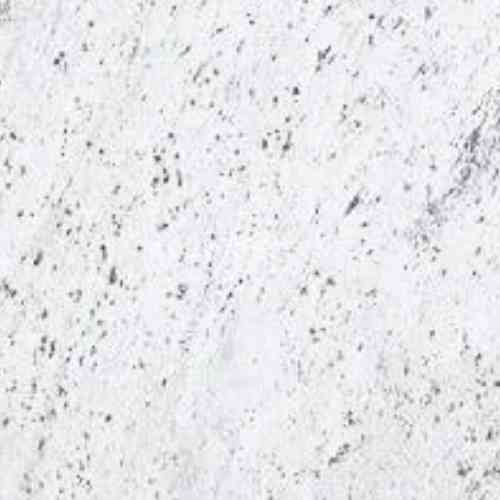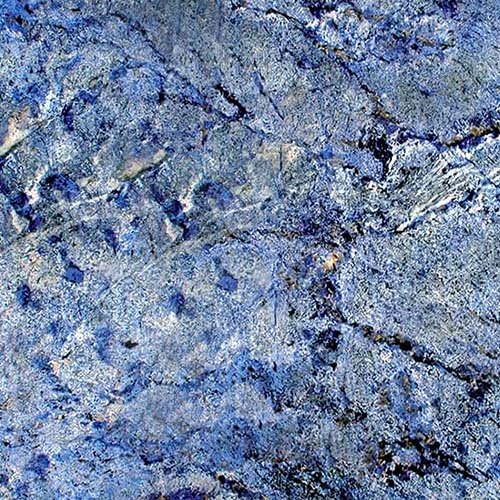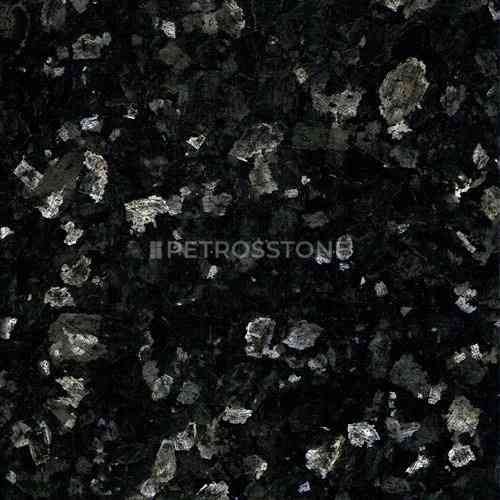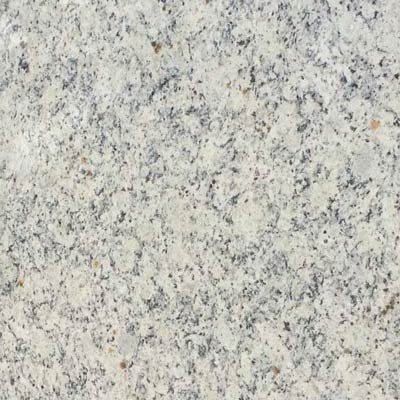Quartz Stone Slabs or Quartz countertops are stain-resistant. However, they are not stain-proof. Quartz does not stain easily, especially high-grade quartz, but prolonged exposure to stain-causing agents, inks, strong chemicals can cause quartz to stain. For every day, uses quartz is practically stain-proof, provided that it is properly taken care of.
Engineered quartz countertops are the newest trend in interior designing of new homes or for remodelling old kitchens. Engineered quartz countertops are more flexible and are less likely to chip or crack. Quartz is non-porous and does not require sealing making it a maintenance-free kitchen work surface. Manufacturers are adopting safe and environmental-responsible business practices while manufacturing eco-friendly quartz countertops and are giving a lifetime warranty. Quartz countertops are available in many colours and designs such as simple colours, vinyl, marble-look, natural-look, and industrial-look. This makes them incredibly attractive but the more important question is are they actually practical?
- Do Quartz Countertops Stain easily?
- Do Quartz Countertops stain with turmeric?
- Does Quartz Countertops absorb water?
- Is Quartz good for Indian Kitchen?
- Why High-Grade Quartz Stone Slabs do not Stain
- How to prevent any stains on Quartz Countertops?
- Which Quartz Countertop Colours are Best for Kitchen Countertops?
- Quartz Colours that will never stain
- Timeless & Classic Quartz Colours
- Luxury Quartz Countertop Colours
- Tips to Maintain Quartz Countertops Scratch & Stain Free
- How to clean Quartz Countertops Surfaces
- Quartz Countertops Vs Granite Countertops: Heat and Stain Resistance
- How to detect if granite or marble absorbs water?
- Choose the right one: Quartz, Granite or Marble Countertop
- Quartz Countertops – An Overview
Do Quartz Countertops Stain easily?
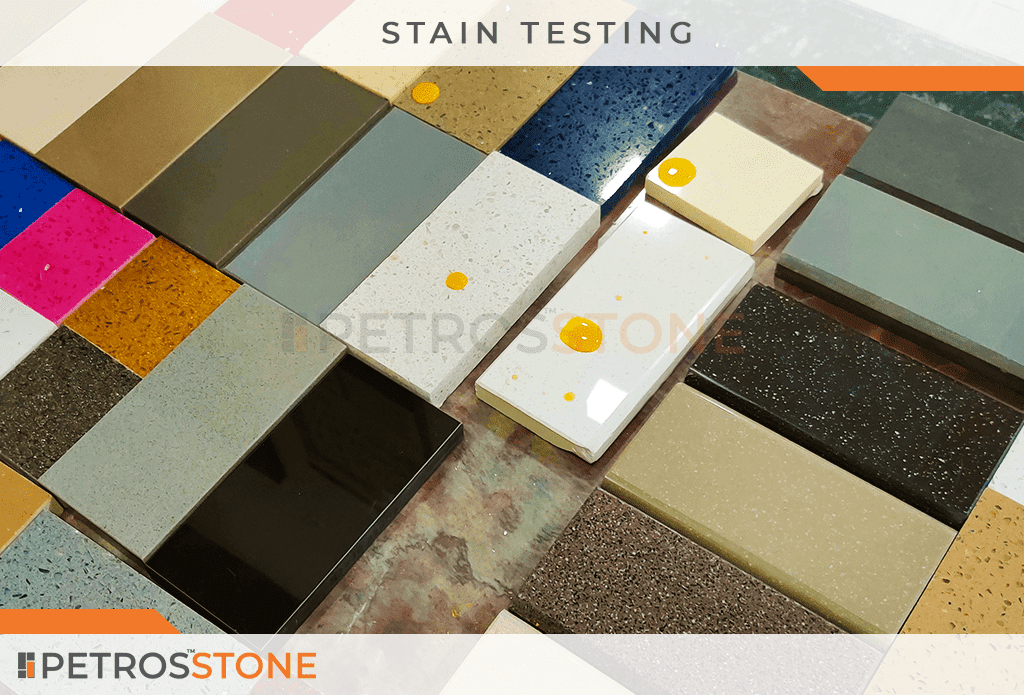
Quartz does not stain as easily as marble, granite, and other natural-stone surfaces; however, it is not completely immune to staining. Quartz countertop includes artificial resins and pigments that are essentially petroleum-by products. These resins react when they come in contact with certain substances, and the reaction is a stubborn stain such as permanent marker ink, sodium hydroxide, and some alkaline chemicals.
Do Quartz Countertops stain with turmeric?
Turmeric, hard water and tea stains on quartz countertops may be observed, but they do not penetrate as deep as unsealed natural stone. Usually, they are mere surface stains and can easily be removed by washing the quartz countertop using a warm soap solution.
When it comes to turmeric, it is important to not let it sit for long periods of time. If allowed to stay overnight, it may provide these liquids enough time to seep through the quartz stone countertops and hence leave a yellowish stain on the quartz countertop. Hence, it is better to either use darker shade quartz or high-grade quartz as they provide much more stain resistance by using higher quality sealants.
If the stains are caused by paint, nail polish, lipstick, wax, or food that has dried and formed a crust, scraping with a plastic knife or spatula will make the stain removal process easier.
Does Quartz Countertops absorb water?
Quartz countertops are non-porous surfaces and do not absorb water and most other liquids. Engineered Quartz is manufactured using high-sealants. Quartz countertop requires virtually low maintenance, unlike natural stone countertops.
Weaker minerals and impurities are removed in the process of manufacturing quartz countertops. This filtration process leaves only the quartz elements that form a strong surface which is more durable than granite countertops. During the manufacturing process, a permanent seal is created on quartz countertop surfaces leaving no pores. Therefore, these countertops are strong, stain-resistant, and very visually attractive when installed in kitchens.
Quartz countertops do not exhibit any porous characteristics unlike natural stones because they are made of cohesive materials and sealants.
Is Quartz good for Indian Kitchen?
High-Grade Quartz is the best option for Indian Kitchen Countertops. High-Grade Quartz kitchen platforms might be relatively expensive but they last longer, incur lower maintenance costs and at the same time give you a lot of flexibility with colour and design.
Why High-Grade Quartz Stone Slabs do not Stain
High-grade quartz countertops are manufactured using high grades of quartz, pigments and sealants making them exceptionally more heat and stain-resistant. They are manufactured under very high temperatures and pressures ensuring very high strength and durability.
High-grade quartz countertops also have a relatively higher composition of quartz stone and hence a lower composition of resins and pigments. High-grade quartz countertops are the best for kitchen countertops due to their scratch and heat-resistant, durability and easiness to clean and maintain.
Petrosstone, is one of the best high-grade quartz brands in India.

How to prevent any stains on Quartz Countertops?
The most logical way to prevent stains on Quartz countertops is to opt for high-grade & good quality quartz countertops like Petrosstone, Caesarstone etc.
To prevent regular quartz countertops from staining, avoid direct contact with coloured liquids as much as possible.
Regular grade quartz countertops when exposed to direct heat or sunlight will exhibit discoloured spots that look like stains. This can be prevented by using pot holders instead of placing hot cookware on top of quartz countertops.
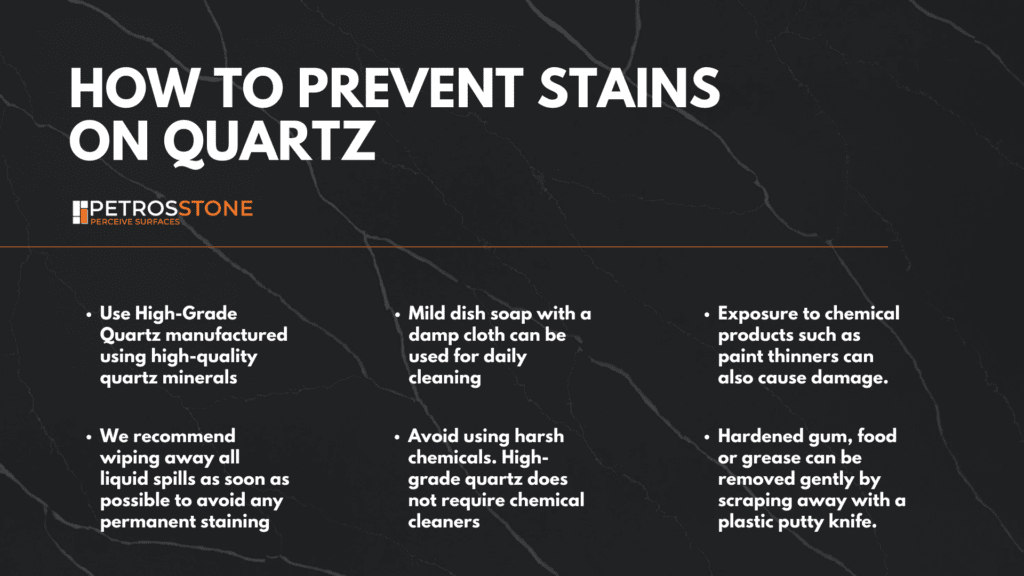
Which Quartz Countertop Colours are Best for Kitchen Countertops?
Quartz countertops are available in hundreds of colours, designs and textures. Due to the number of options available, you might be confused as to which quartz colours are best for kitchen countertops. Here we have listed a few quartz countertop colours that will fit your kitchen needs.
Quartz Colours that will never stain
Dark and granite-like quartz countertops colours will be perfect in disguising stains. Especially, in Indian kitchens involving a lot more spices and potentially more exposure to staining liquids, these are most suitable. Petrosstone High-Grade Quartz colours like Iron Grey, Mudpie, Nero Marquina are some of the best colours to opt for. These are neither too dark nor very light. Thus, they match well with almost any kitchen shutter designs at the same time retaining the modern, elegant look of a quartz kitchen.
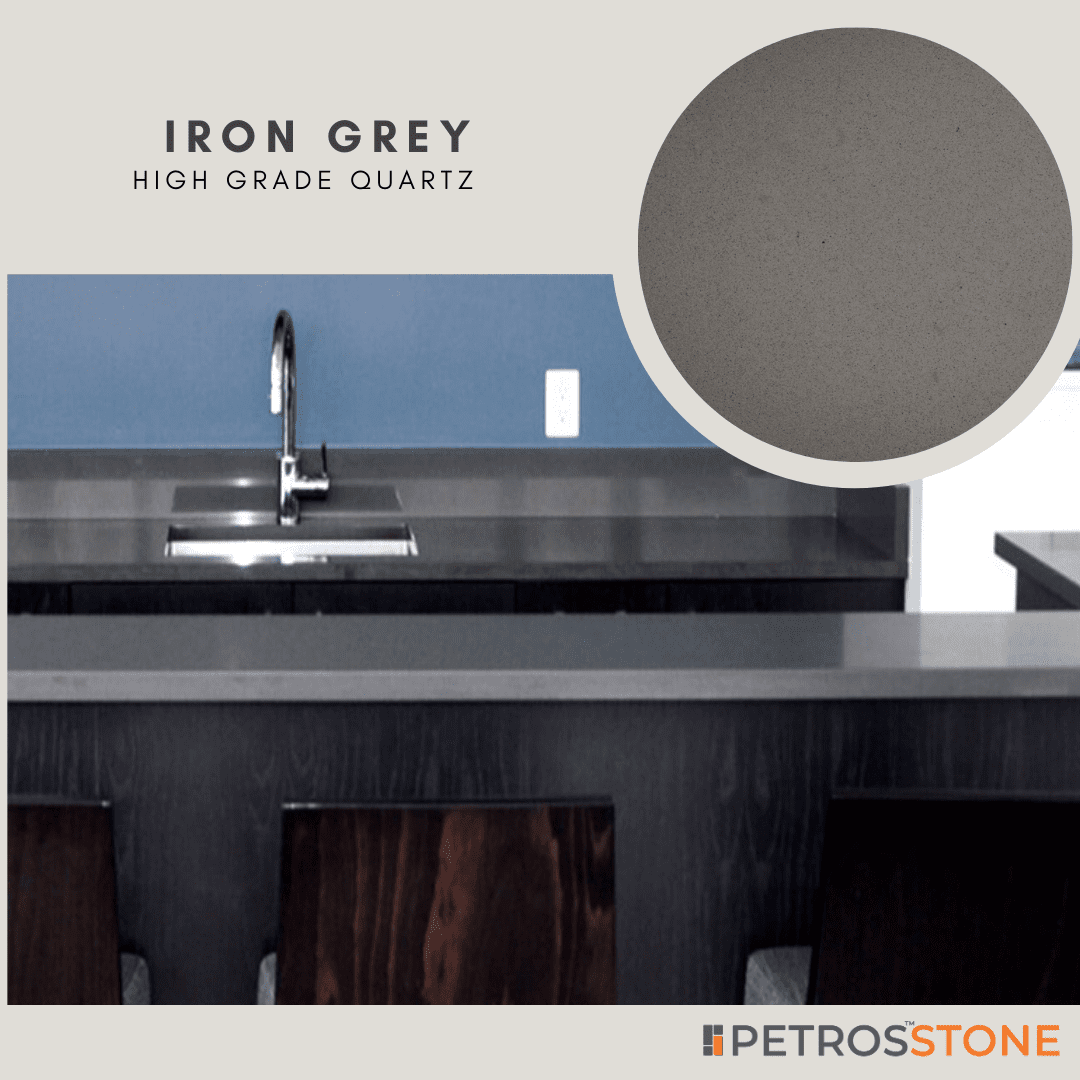
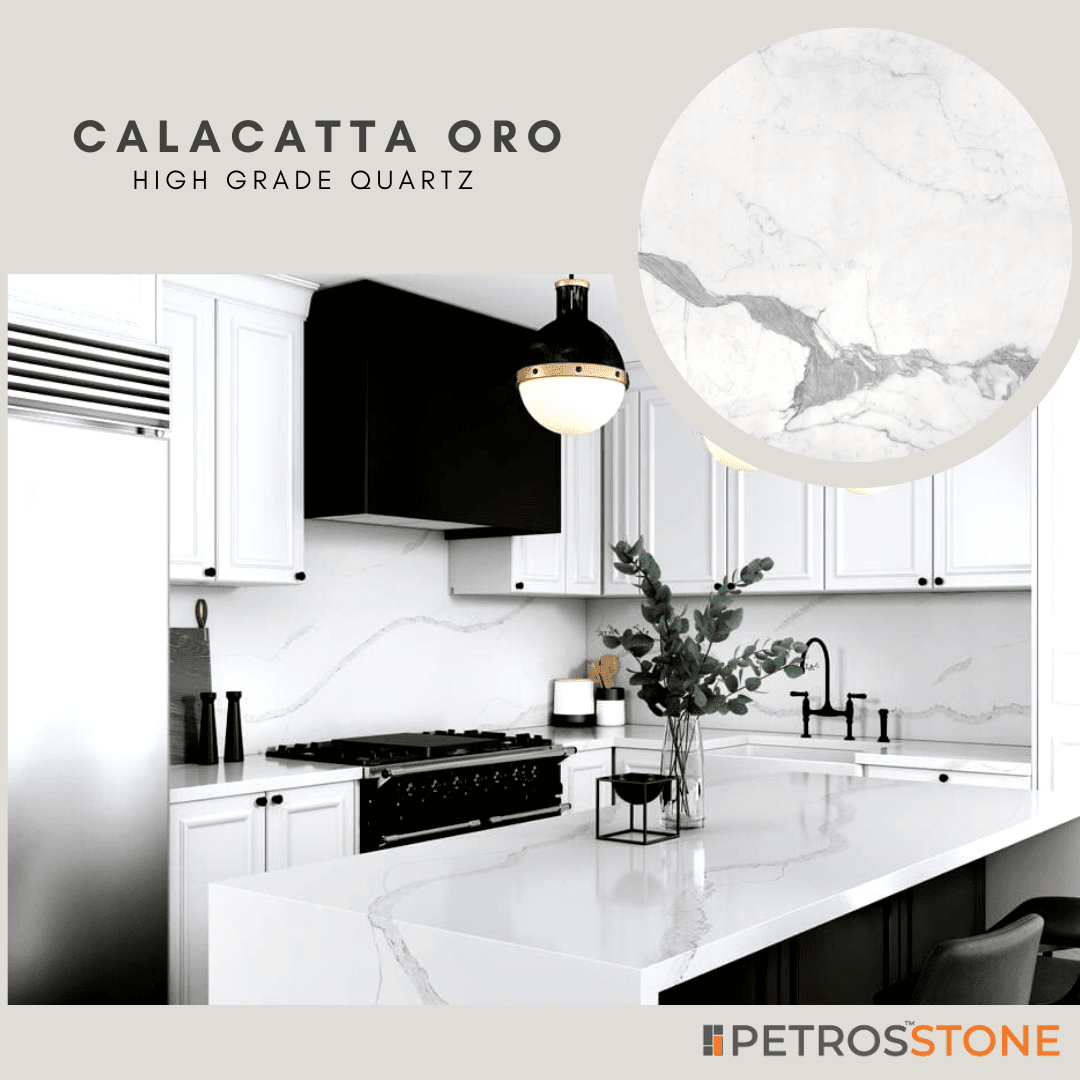
Timeless & Classic Quartz Colours
White & beige quartz colours are the timeless classic quartz colours that will not date your kitchen for decades to come. Though white can be a little difficult to maintain, Petrosstone High-Grade Quartz will not give you any chances to complain.
Beige is a very versatile colour giving you a lot of room to play with fashions, styles and colours in your kitchen.
However, if you are going for a White Quartz Countertop, we would certainly recommend going for High-Grade quartz countertops as they offer much higher stain and heat resistance. An added benefit is that they are much stronger and more durable.
Luxury Quartz Countertop Colours
Calcutta & Carrara Quartz Countertops from the Marble Series are some quartz countertops that will adorn your kitchen countertop with luxury. Italian marble, especially Calcutta is an epitome of luxury. HIgh-grade quartz surfaces will not only be maintenance free but also not take away from the luxury of Italian marble, thus posing a win-win situation for your countertop.
Tips to Maintain Quartz Countertops Scratch & Stain Free
Quartz countertops do not need any special maintenance to last a lifetime. However, without proper care and low maintenance, problems can still arise.
Routine Care for Quartz Countertop
- Mild dish soap or hand soap with a damp cloth/paper towel/sponge can be used for daily cleaning. Using rough and tough materials to clean the quartz countertop may scratch the surface.
- Cleaning with brushes & tools: Do not clean quartz countertops with hard brushes/tools that can cause abrasions. This may cause scratches on the shiny countertops over a period of time.
- Chemical Cleaners: Be careful while working with chemicals on quartz countertops because they may cause irreversible damages. Exposure to chemical products such as paint thinners can also cause damage to the surface of the countertop.
- Concentrated alkaline products, abrasive cleaning materials, oxidizers, free radicals and cleaning products with high acidity are a few chemicals that should be avoided on quartz countertops.
Is Quartz Heat Resistant? Can Quartz crack from heat?
Use heat protectants and avoid extreme heat exposure because it can warp the quartz countertop. Quartz countertops may be heat resistant but they are certainly not heat-proof. It is fine to place your occasional coffee mug or a hot bowl of soup on the quartz countertop, but placing a scorching pot or pan on the surface for a long time can lead to discolouration or burn marks on the surface, especially for regular grade quartz countertops. Using a potholder or a trivet before putting a scorching pot or pan is advisable to avoid heat-damaging the quartz countertop.
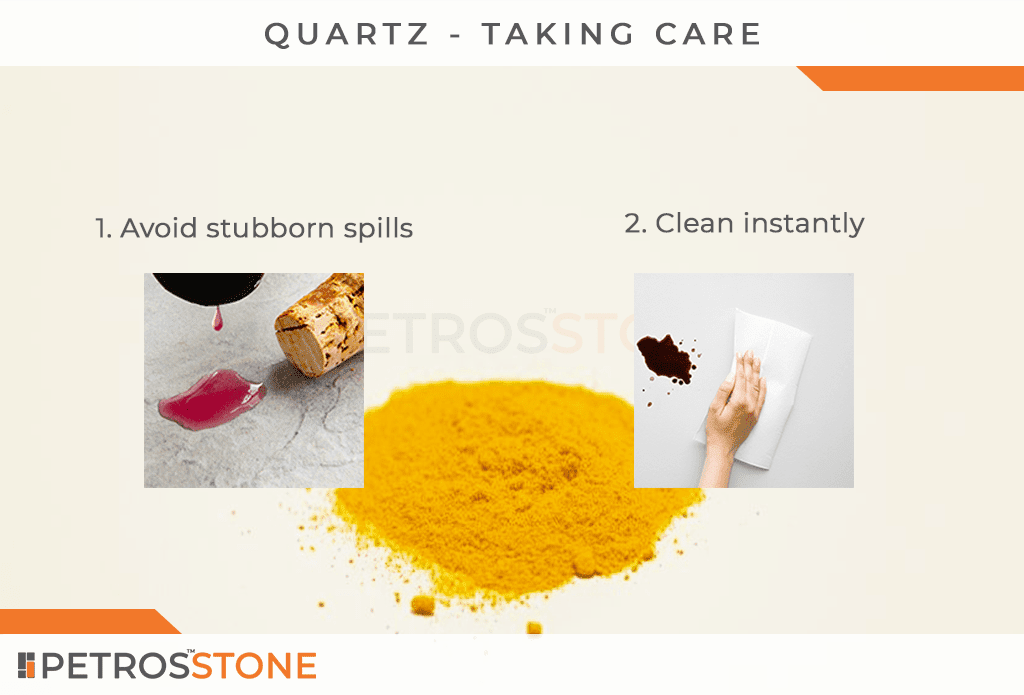
Stubborn Spills on Quartz Countertop – Avoid these
We recommend wiping away all liquid spills as soon as possible to avoid any permanent staining. Stains such as hardened gum, food or grease can be removed gently by scraping away with a plastic putty knife.
Permanent inks will cause stains and should be avoided. Harsh chemical substances can also discolour quartz surfaces. Hence, it is highly advised to opt for high-grade quartz surfaces from Petrosstone – these are acid-proof, high-grade quartz surfaces that are even used in chemical research laboratories.
Quartz and Radon gas
The granite found around the world produces a negligible amount of Radon. It is a radioactive gas formed due to the decay of radium in granite. Quartz countertops do not emit any radioactive gas but the theory about granites does not make it a less safe choice in kitchen countertops.
How to clean Quartz Countertops Surfaces
- Quartz countertops do not require any sealant to protect the surface and cleaning with warm soapy water is the best cleaning solution.
- Any dried food on the quartz countertop can be scraped with a plastic tool, such as a putty knife gently.
- Wipe away any grease with disinfectants or degreasing products that do not contain bleach and wash the countertop immediately.
- For any tough stains use an adhesive remover and wipe it off completely with warm water.
- All quartz countertops are scratch-proof, heat-resistant, and durable; therefore, proper care is necessary to keep the countertop immaculate for a lifetime.
- How to seal natural granite or marble.
Quartz Countertops Vs Granite Countertops: Heat and Stain Resistance
| Particulars | Quartz Countertop | Granite Countertop |
| Mohs Hardness | 7-8 | 6-7 (depending on mineralogy) |
| Melting Point | 1670°C | 1215-1260°C (dry) |
| Natural radiation | None | Traces |
| Sources | Man-made | Natural |
| Natural fractures | None | Small but variable amounts |
| Porous | No | Very slightly |
Does granite absorb water? Does granite stain easily?
All rocks such as marble and granite are natural formations and they absorb water due to varying degrees of porosity. Natural stones hold a network of tiny interconnected channels like a sponge, which permit penetration by liquids and gasses. The rate of absorption depends on the exact type of stone. Granite absorbs less water compared to marble but prolonged contact with water can affect both surfaces equally. Water retained on these surfaces for longer periods of time results in dark spots and highly acidic substances like orange juice, coffee, and wine also form dull marks on marble and granite.
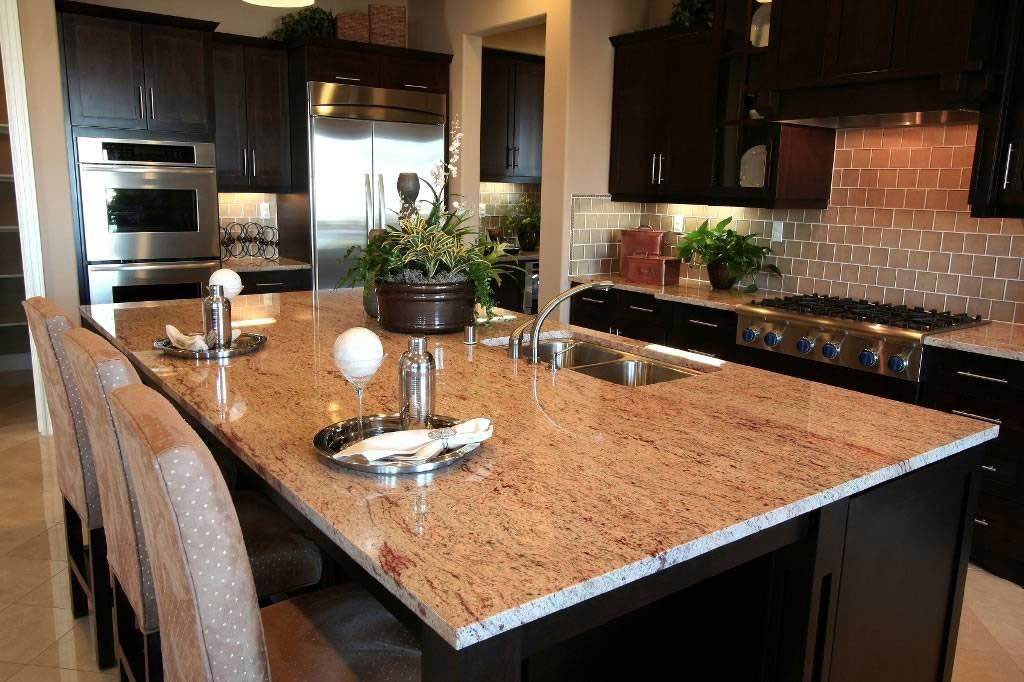
Does Marble absorb water? Does marble stain easily?
Marble is a very soft solid surface that is porous in nature and has the tendency to heavy staining compared to granite and quartz. Cleaning products which are abrasive can leave stains or marks on marble surface instantly. Therefore, it is very important to wipe spills quickly and completely. A good quality sealant should be reapplied on marble every 3-6 months to help prevent occasional stains.

How to prevent granite/marble from absorbing water?
If granite or marble countertops are left unsealed, water or any other liquids spills can easily penetrate through the surface. Stone sealers are used extensively to protect natural stone countertops from all variants of absorbents.
How to detect if granite or marble absorbs water?
Granite countertops are more porous compared to other types of countertops, but not all granites possess a greater absorption rate. Perform a simple water test to check if the granite countertops need to be sealed. Pour ¼ cup of water and see how long it takes to absorb. The granite will become darker when water is absorbed onto the surface. If the water absorbs quickly within 10 minutes, it is necessary to apply a few layers of sealer annually for every 3-5 years and wipe spills quickly.
Can water ruin granite or marble countertops?
Granite countertops are some of the most durable kitchen countertops. Granite being a natural stone is somewhat porous. Before installation as a countertop, the granite or marble is treated with special sealers to make it less likely to absorb stains and liquids. Without any sealant, if dark coloured liquids spill and sit on the countertop for a long period of time, they can cause discolouration. Sealants are manufactured with nano-technology and possess high amounts of stone sealer that can prevent absorption of liquids.
Choose the right one: Quartz, Granite or Marble Countertop

Quartz countertops are stain-resistant and high-grade quartz surfaces like those from Petrosstone are much more stain-resistant. However, quartz surfaces are not stain-proof. It is important to avoid interactions with harsh chemicals, acids and inks.
If you are extremely worried about stains, go with darker shades of quartz. If white is something you cannot do away with, opt for high-grade quartz surfaces from brands like Petrosstone, Silestone and Caesarstone etc.
The great advantage of quartz countertops over granite or marble is that it does not need resealing every couple of years compared to the yearly maintenance of granite and marble.
Quartz countertops are a relatively cost-effective option considering the colour options, strength and durability. Though the price depends on the colour, style, and veining of the quartz, the basic varieties are not as expensive as you might think.
Unlike granite and marble stone surfaces, quartz countertops do not require special cleaners. All you will need is warm water, mild dish soap, and a soft sponge to clean up the quartz countertop.
Quartz Countertops – An Overview
Quartz countertops are strong, durable, designer‐friendly, versatile and require low maintenance making them an ideal material for the kitchen. The quartz countertop is composed of approximately 93% quartz particles and 7% binding resins and additives. Quartz is crystallized silicon dioxide (SiO2) that is white or transparent in colour and is resistant to acids. It is found in various other shades when comes in contact with natural impurities during formation. Man-made quartz surfaces use natural quartz grains with resins to create non-porous, super-strong materials that can be developed in different colours, patterns, textures, and finishes.
Quartz countertops are a highly popular choice for modern kitchens across the globe. Quartz is fabricated into slabs that can be cut into desired sizes. Engineered Quartz Countertops are available at a reasonable price and durable but more expensive than granite and marble counters. Granite and marble are more durable but are costlier than plastics and laminates. Quartz countertops are scratch resistant, and lower maintenance countertop slabs compared to marble and granite. Also, it does not require sealing and does not stain easily.

Hi!
I’m Ritupriya, and I bring together years of experience in architecture with a deep passion for writing. At Petros® Stone, I share my insights on natural stone, helping readers explore its role in design, durability, and timeless beauty.
Brown Granite
White Galaxy Granite
Blue Bahia Granite
Silver Cloud Granite
Black Pearl Granite
Dallas White Granite


